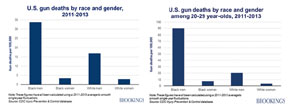

Why are Florida Legislators siding with predatory Payday Lenders?
By Benjamin F. Crump, (Principal and Owner, Ben Crump Law)
In the 1980’s we saw crack cocaine dealers on every corner in low-income Black neighborhoods. For too long, we’ve seen payday lenders in many cases occupying the very same corners in the very same neighborhoods. Yet, today, as we speak, our Florida legislators are busy doing the bidding of payday lenders rather than standing up for the people who are ensnared in their trap. We must ask the question: Why do our elected officials think that 200 percent interest rate loans should be peddled in our communities?
Payday lending puts the burden of extremely high interest rates on people of extremely low means. And these loans offer no value, but instead serve to systematically redistribute wealth from low-wealth communities to large, corporatized predatory lenders. And as with so many other issues, this is one that has a devastating impact on the fabric of Black and Latino communities.
A study of Florida payday lending documented the same phenomenon here as has been found in states like California, Colorado, and others. More payday loan stores are located in communities of color than in White neighborhoods, even when comparing neighborhoods with similar income levels. In Florida, that means $311 million per year is extracted from the pockets of Floridians and deposited into the pockets of payday lender executives; this transfer of wealth disproportionately affects those very same communities whose residents struggle every day to meet basic needs, let alone rise up and overcome the many and varied obstacles that keep them from narrowing that wealth gap and joining America’s middle class.
Florida lawmakers first legalized these dangerous products to come to our state back in 2001 Since that time, payday lenders have siphoned away over $1.3 billion from consumers who earn on average about $25,000 a year. With bills sailing throughout the legislature, greased by the more generous contributions by payday lenders on both sides of the aisles and to community groups purporting to serve their communities interest, the payday lenders are asking your legislators’ permission for another path to the pocketbooks of the poor. Their bills, SB920 and HB 857, would be an additional predatory product, carrying interest rates over 200 percent, to come in to our neighborhoods.
There is no excuse for this. It is a matter of principle, and all lawmakers need to do is look to the facts demonstrating the widespread harm payday lenders do their customer base rather than looking to the false claims put out by the companies who profit from this predation. Payday lenders, nationally, make 75 percent of their revenue from people caught in more than 10 loans per year. The same type of analysis shows that, in our state, over 83 percent of loans go to people with seven or more loans per year. Borrowers are more likely to go into bankruptcy, and have trouble keeping up with their bills and keeping their bank accounts in good standing. Knowing these facts, letting this corrupt business model go unchecked is simply wrong.
My own home state of North Carolina experimented with payday loans years ago. After just three years in the state, the damage was done and was clear. Payday lenders had sold us a false bill of goods, marketing the product as a financial help, when in reality it caused financial destruction. Due to this overwhelming harm, North Carolina enacted an usury cap with bipartisan support and it’s thankfully been that way for more than a decade.
Money matters. Black and Brown families working to get on their financial feet— their lives matter, too. Fairness in lending matters. We cannot, in good conscience, let a sophisticated means of exploitation, especially one that can be resolved with such a simple solution, continue to destroy good and decent people. Florida lawmakers should reject this new product and instead pass a usury cap on payday loans—just as people across this state are asking them to do.





Be the first to comment